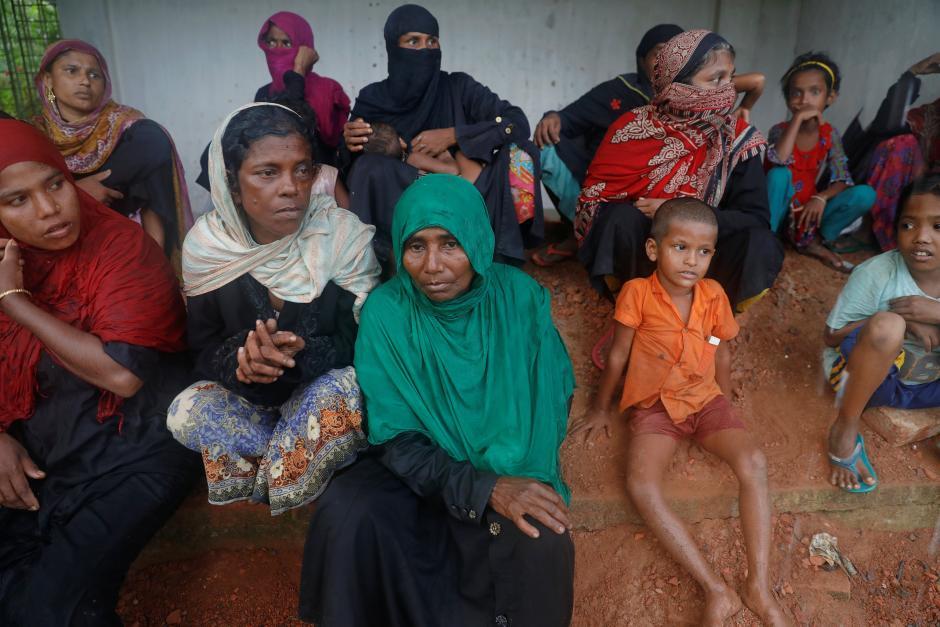COX‘S BAZAR, Bangladesh (Reuters), OCT. 4, 2017 – Humanitarian organizations helping Rohingya Muslim refugees in Bangladesh said on Wednesday they need $434 million over the next six months to help up to 1.2 million people, many of them children, who need life-saving help.
There are an estimated 809,000 Rohingya sheltering in Bangladesh after fleeing violence and persecution in Myanmar, more than half a million of whom have arrived since Aug. 25 to join 300,000 Rohingya who were already there.
“The Rohingya population in Cox’s Bazar is highly vulnerable, many having experienced severe trauma, and are now living in extremely difficult conditions,” Robert Watkins, U.N. resident coordinator in Bangladesh, said in a release, referring to the Bangladeshi border district where most Rohingya are living.
Bangladesh and humanitarian organizations are struggling to help the 509,000 Rohingya who have arrived since Aug. 25, when attacks by Rohingya militants triggered a Myanmar military offensive that the United Nations has branded ethnic cleansing.
Myanmar rejects accusations of ethnic cleansing. It says its forces are fighting insurgents of the Arakan Rohingya Salvation Army (ARSA) who claimed responsibility for attacks on about 30 police posts and an army camp on Aug. 25.
The insurgents were also behind similar but smaller attacks in October last year that also led to a brutal Myanmar army response triggering the flight of 87,000 Rohingya to Bangladesh.
The agencies’ plan factors in the possibility of another 91,000 refugees arriving, as the influx was continuing day to day, Watkins said.
“The plan targets 1.2 million people, including all Rohingya refugees, and 300,000 Bangladeshi host communities over the next six months,” he said.
“A rapid response from donors to this response plan is essential if the humanitarian organizations are to move ahead with critical activities to save lives, and provide protection to Rohingya refugees in Bangladesh,” Watkins said.
Half a million people need food while 100,000 emergency shelters are also needed. More than half of the Rohingya population are children, while 24,000 pregnant women need maternity care, the aid agencies said in their plan.
“Massive and immediate scale-up is required to save lives,” they said. “Without immediate, adequate water, sanitation and hygiene, there will be disease outbreaks.”
GROUP REPORTS MASSACRE

Rohingya refugees take shelter from the rain near their camp in Cox’s Bazar, Bangladesh, October 3, 2017
The Rohingya are regarded as illegal immigrants in Buddhist-majority Myanmar and most are stateless.
Myanmar leader Aung San Suu Kyi has faced scathing criticism for not doing more to stop the violence, although she has no power over the security forces under a military-drafted constitution.
She has condemned rights abuses and said Myanmar was ready to start a process agreed with Bangladesh in 1993 under which anyone verified as a refugee would be accepted back.
But many Rohingya are pessimistic about their chances of going home, partly because many do not have official papers confirming their residency.
Most are also wary about returning without an assurance of full citizenship, which they fear could leave them vulnerable to the persecution and discrimination they have endured for years.
Human Rights Watch said it had found evidence that the Myanmar military had summarily executed dozens of Rohingya in a village called Maung Nu, in the north of Rakhine state, on Aug. 27, two days after the insurgent attacks on security posts triggered the violence.
One of the attacks was on a border police checkpoint just to the north of Maung Nu.
The rights group said it had spoken to 14 survivors and witnesses from Maung Nu and surrounding villages, who were now refugees in Bangladesh.
They described how Myanmar government soldiers entered a compound in Maung Nu where people had gathered in fear of military retaliation.
“They took several dozen Rohingya men and boys into the courtyard and then shot or stabbed them to death. Others were killed as they tried to flee,” said the rights group, which has accused Myanmar of crimes against humanity.
Spokesmen for the government, the military and police did not answer their telephones and were not available for comment. Wednesday is a holiday in Myanmar.
Reuters was not able to independently verify the rights group’s report.
The group said there were also numerous reports of serious abuses by the ARSA militants, though it had been unable to independently verify those accounts, in part because Myanmar has restricted access to the area.








